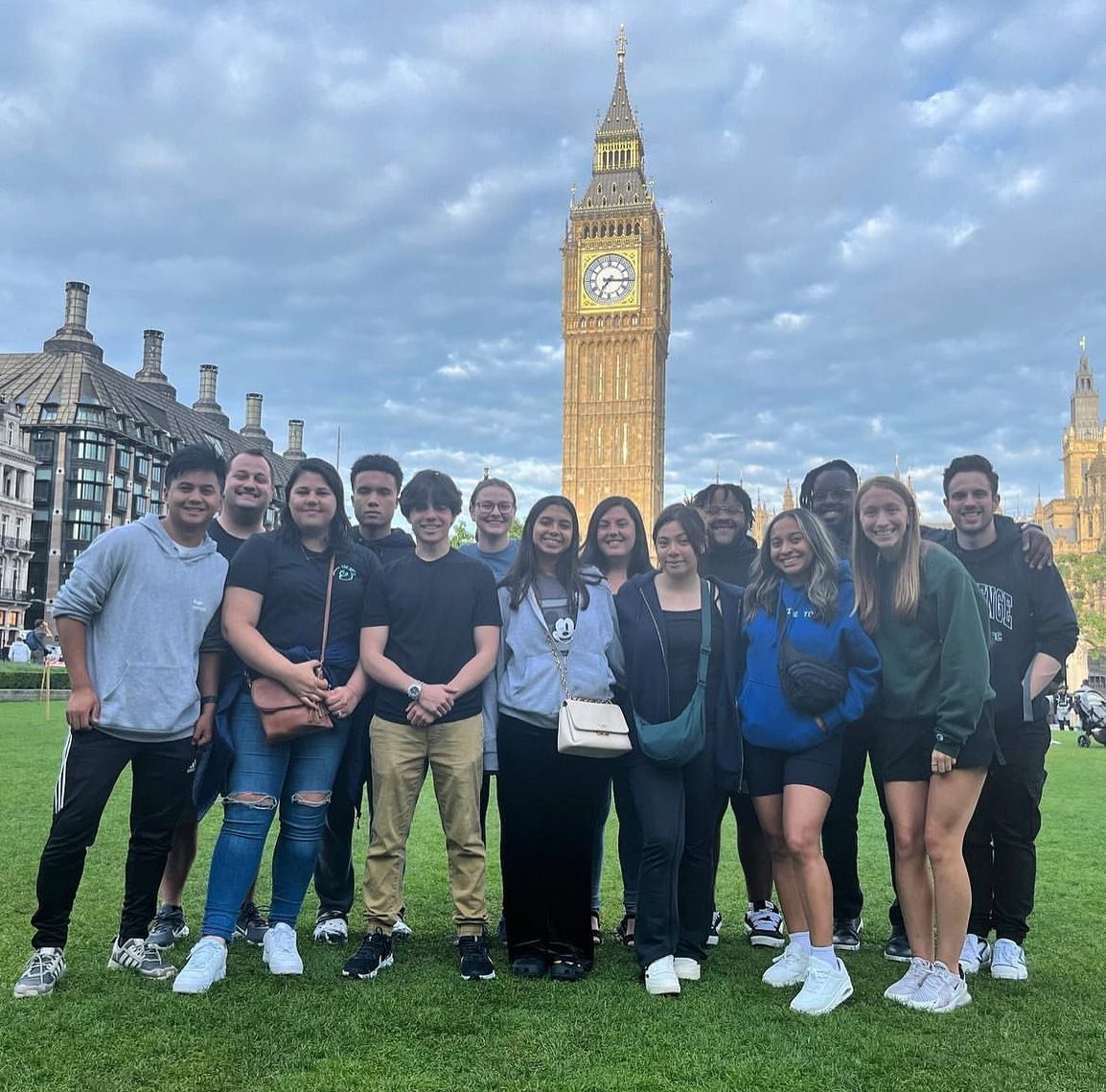Boston Ministry Coordinator Is Developing Leaders With a “Missional Approach for the City”
Joe Souza meets with a group of next generation ethnic leaders at the 2023 BCNE Annual Meeting
Joe Souza’s decision to interview pastors in Greater Boston about their goals for urban ministry “was a game-changer” that helped him better “understand the perspective of the people already doing the work.” What he heard helped him begin to shape a cohesive and effective “missional approach for the city.” Baptist Churches of New England pastors said they “need to be involved in some of the big issues around the city” and the region—urgent social concerns such as the epidemics of hunger, homelessness, poverty, and addiction.
As the BCNE’s new Boston Area Regional Coordinator, Souza faces the enormous task of responding to these ministry realities. “How do we help immigrants and refugees coming to the region? How do we have more of a multicultural presence?” he asks himself. “These are huge needs and huge challenges. That’s what I’ve been hearing. That’s what I’ve been praying about.”
It will take more than church planting, noted Souza, who is 57 and a native of Rio de Janeiro. Along with his wife and three children, he moved to New England in 2004 to start Celebration Church in Charlestown, the oldest neighborhood in Boston. For fourteen years as a church planting catalyst—a task he says is not unlike “a matchmaker”—he discovered, encouraged, connected, and trained at least seventy-seven people willing to start a church in the area.
Once someone sensed God’s call to Greater Boston ministry, Souza drove them through various neighborhoods where they might plant their lives and he assisted them to find affordable housing, a perpetual hurdle in one of America’s hottest real estate markets. Sixty percent of the church planters he befriended in those years were White, English-speaking “Anglos,” and the rest were internationals from many countries.
When interviewed in 2021, Souza said he “enjoys helping pastors in whatever they’re doing. I have a heart for that type of ministry. . . . I’ve made every mistake in the book. I’m a survivor.” He called himself “a voice of encouragement and hope,” a coach, and a mentor for the next generation of New England church leaders. That servant approach and the friendships he developed over the years continue to help Souza in his present roles.
In addition to guiding the work of what was once called the Greater Boston Baptist Association (now merged with the BCNE), he also is the Ethnic Ministry Coordinator for the Boston region. He stated that 85% of the international churches in the BCNE are located in the Greater Boston area. (Edson Messor, the BCNE’s Latino Training Coordinator, serves Hispanic and Brazilian congregations in the rest of the six New England states.)
Souza understands that a big part of his new role is “to mobilize churches for mission within their contexts” and to foster a sense of “functional unity and togetherness.” He wants to combat the NIMBY (Not in My Backyard) attitude that is prevalent in some circles and help pastors and other church leaders realize that their neighborhood is a “mission field” and, starting from where they are, they can in fact “make an impact on the city.”
In doing so, he echoed God’s call to Jeremiah to “seek the peace and prosperity of the city to which I have carried you into exile. Pray to the LORD for it, because if it prospers, you too will prosper” (Jer 29:7, NIV).
The necessity in Massachusetts communities, Souza noted, is to develop “connecting point(s) to not only talk about Jesus, but to live out the gospel” in the way it was done by first-century followers of Christ, who “were together and had everything in common. They sold property and possessions to give to anyone who had need” (Acts 2:44-45, NIV). “That’s the paradigm right there. Are we being generous? Are we working together?” Souza asked.
“That’s a huge shift and I don’t know what that’s going to look like in five years, but I think God is really starting to confirm that this is the vision that we need to implement.” He has seen too many “barriers being built rather than bridges. How do we build bridges to work and serve together to meet the needs of the city in the name of Jesus?”
Most churches, he noted, are not doing evangelism in their neighborhoods. Working with many others on the local level, he wants to change that by creating a “transformation” that will require “not only training and talking—but doing! Churches need to be reaching their regions and working together.”
Young leaders from New England in London
To that end, Souza implemented a seven-month, seminary-level training program that is focused on second-generation international youth. Using the “Charting a Bold Course” curriculum, he wants to “see if we can impact the future of ethnic churches and develop higher capacity leaders.” Some Hispanic and Brazilian congregations in New England are struggling to survive or even closing their doors because they are not effectively reaching their “next generation” members and cultivating them as leaders, he reported.
Following the classroom time, fourteen young leaders from nine churches traveled to London for ten days in July. Another eleven ventured to Portugal and eight went to Brazil. There they received what Souza described as “a wake-up call” when they discovered “the urgency of living missionally and saw how God can use [everyone] outside the four walls of the church.” The “marketplace ministries,” evangelism outreach projects, and innovative churches the BCNE youth visited in Europe “exposed them to a [post-Christian] reality that is similar to New England.”
By investing in efforts to train youth and view them as church leaders committed to urban ministry, Souza concluded, “the mission field [is becoming] the mission force.”
A Massachusetts native and a New England Baptist since 1970, Dan Nicholas is the BCNE managing editor


